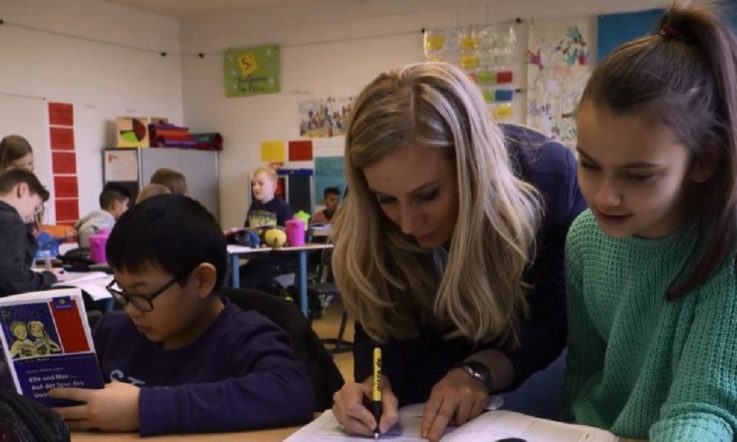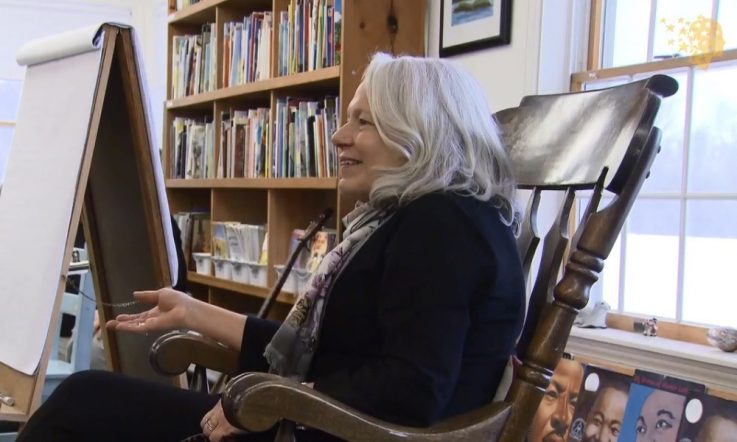A teacher who has spent the past six years working in a fly-in Inuit village in the Canadian arctic was last night named the winner of the Global Teacher Prize, an award which is often referred to as ‘the Nobel Prize of Teaching'.
In Dubai – worlds away from the remote community in which she lives – Maggie MacDonnell received US $1 million prize money for her outstanding contribution to the teaching profession.
MacDonnell is the third recipient of this prize, following in the footsteps of Nancie Atwell from the US and Hanan Al Hroub from Palestine who won the prize in 2016.
Find out more about Maggie MacDonnell's story in the video below.
At MacDonnell's Canadian school, due to the harsh conditions (the school cannot be reached by road and winter temperatures are -25 degrees Celsius), there are very high rates of teacher turnover.
Just 1300 people live in the community which is surrounded by snow and ice, but every resident is benefiting from MacDonnell's work in Ikusik School.
‘I think as a teacher in a small Arctic community, your day never ends,' MacDonnell says. ‘The school doors may close – but the relationship with your students is continuous as you share the community with them.'
The school faces many significant challenges. There were six suicides in 2015, all affecting young males between the ages of 18 and 25.
‘Witnessing the funerals of my students is one of the hardest things I've ever gone through and I never want to be in that position again,' she says.
‘On three separate occasions I have had students come to thank me for saving their life. All of them had gone through difficult times when losing friends and family to suicide as well as experiencing other traumas in their life. Each of them had reached out to me in some way when they were battling their own thoughts of suicide.'
Teenage pregnancies are also common in the community, high levels of sexual abuse exist, and gender roles often burden young girls with significant domestic duties.
MacDonnell therefore created a Life Skills program specifically for girls which has seen a 500 per cent improvement in girls' registration in life skills programmes that were formerly dominated by boys.
The success of her program has not only motivated many young people to return to school, but it has also encouraged them to pursue projects that are of interest to them, like cookery and mechanics, which in turn benefits the local community.
Through this project, her students' self-esteem has soared, with many of them receiving lots of praise and acknowledgement for their efforts. ‘Giving them a new positive platform to stand upon while contributing to the community is transformative for both my students and the community,” MacDonnell says.
In the community, the educator has also worked to establish a partnership with a local day care centre where her students can gain professional experience. She has set up a fitness centre at the school which has become a hub for youth in the community, turning them away from drinking, smoking and drugs as forms of escape.
Other examples of her work include running a community kitchen, attending suicide prevention training and hiking through national parks to understand environmental stewardship.
MacDonnell has also been a temporary foster parent in the community, including to some of her own students.
MacDonnell says she plans to use the US $1 million prize money from the Global Teacher Prize to establish a non-government organisation (NGO).
Visit www.globalteacherprize.org to find out more about The Global Teacher prize.



